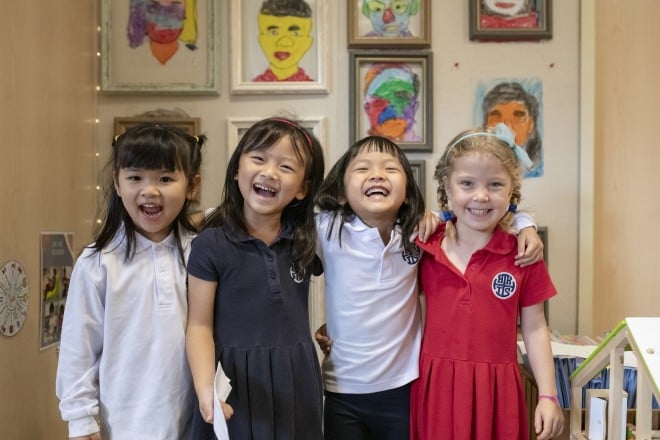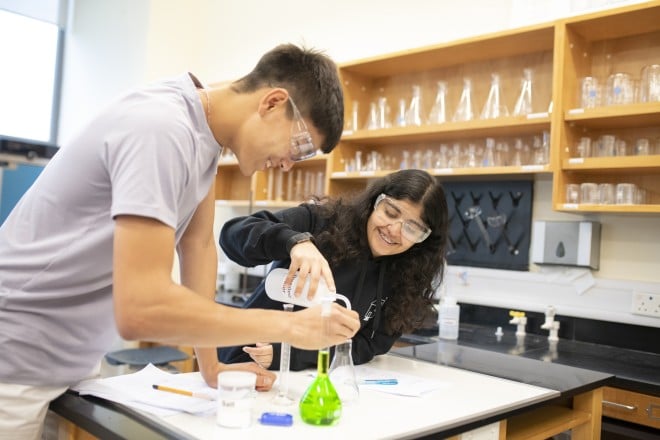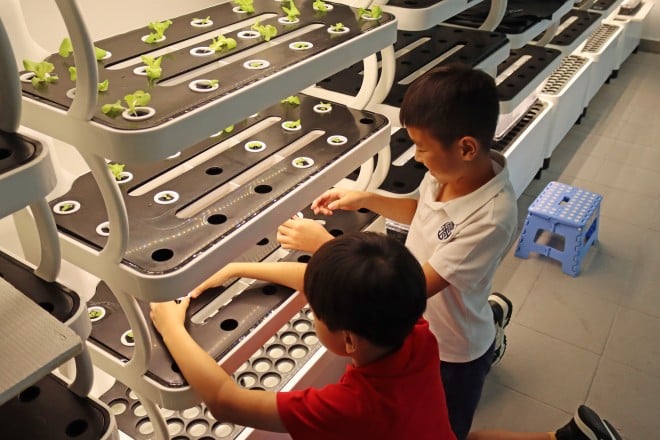-(1).jpg?itok=mdYY1OPi)
HKIS puts focus on skills for tomorrow’s world
[The content of this article has been produced by our advertising partner.]
It is one thing for students at Hong Kong International School (HKIS) to follow an American curriculum but, as importantly, they also receive an American style of education.
That comes from a pedagogic approach that encourages inquiry, student choice, and developing the full range of skills needed to get on in the modern world. And a big part of that is the idea that each student has his or her own style in the way they approach learning and engage with the material being taught.
“It is a combination that lets students move fully and freely between American schools and internationally, and it helps the transition into universities in the US and around the world,” says Ron Roukema, interim head of school at HKIS. “And the framework we use allows latitude in teaching different topics based on abilities and what works best.”
-(1).jpg?itok=LKg5D_ai)
Where appropriate, though, HKIS also incorporates elements from the C3 framework for social studies covering civics, history, geography, economics, and inquiry skills, and from the New Generation Science Standards.
This flexibility makes it possible to promote excellence, explore connections, make classes more experiential, and stay relevant in the context of Hong Kong and Asia.
“Our teachers create a learning environment that replicates situations which are current and meaningful,” says Roukema, noting for example that a literature course for seniors isn’t limited to Shakespeare, but can include stories from Vietnam, China, or around the region. “From kindergarten to Grade 12, the curriculum is aligned to provide the building blocks, concepts and skills needed for a well-rounded education in science, mathematics, liberal arts, coding and much more.”
These days, he points out, the teacher’s role is no longer to be the “sage on stage” who stands at the front and is there to dispense knowledge. Rather, it has evolved to be more of a facilitator, someone who can inspire interest, spark insightful discussion, and demonstrate the value of learning.

And the upshot is that students become more self-confident, motivated, better at expressing themselves, enjoy a sense of independence, and don’t view everything as a competition.
“This style of teaching is an important concept as you look into the future of education and what students are going to need to know,” Roukema says. “It is also our role to make sure they have the skills to form an analysis, using data and information, and to reach conclusions that are pertinent to society. We want students to see there can be more than one or two ways to get the same result and not to memorise, but to understand.”

The programme will start in August 2025. While the academic philosophy, standards, and learning experiences are aligned with the mainstream programs of the Primary school, the dual language programme will deliver academic content in both English and Putonghua and develop literacy skills in both languages. After Grade 5, students would move up into the main middle school stream, having acquired strong bilingual proficiency plus a good understanding of the American style of learning through inquiry.
“There is already a lot of excitement about this among current and potential parents,” Roukema says. “But we will take a gradual approach, starting with students in Reception and then adding grades, because this is not just a language programme.”
Soon, a coordinator will be in place to oversee the hiring of teachers, curriculum design, and the initial application process, which is expected to begin later this year.

“For final qualifications, we are diploma-based and most senior students take four to eight Advanced Placement choices,” Roukema says. “These allow them to show the rigour of their coursework and count as college credit, so some of our graduates can start university as late freshmen or even sophomores.”
As another sign of progress, he notes that a new HKIS student activity centre will open in late 2024 with facilities for multiple sports, music and the performing arts.
“We are building a campus for the next 50 years,” Roukema says. “We need to keep up with the times.”
